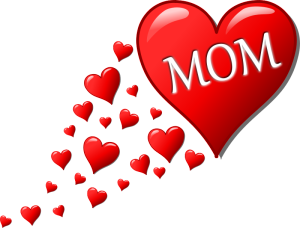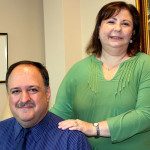By Tony Calabrese, Ph.D and Pat Calabrese, PMHNP
Google trending topics on motherhood and what will you find? Discussions on family dinners, “over-parenting,” gifted children and birthing techniques. Look for articles about Mother’s Day in most popular magazines and you will read, somewhere in the piece, about children. When mothers get together, in any forum, their likely topic of conversation is children.
Mothers will talk about their own children, other people’s children, famous children, the behavior of children, and all of the elements that surround their care and feeding. An immediate bond forms between two women when they both realize they are raising 4-year-old boys. The joys, pains, and worries about kids can consume a conversation for an entire afternoon. To commemorate this all important, and all consuming job, Mother’s Day was created, not just to sell greeting cards, but to celebrate the women who are mothers.
 So who is a mother? There is not one way to become a mother. There are mothers who have actually given birth, those that mother children birthed by others, and mothers who birth children they can no longer raise themselves. There are mothers, who temporarily raise foster children, and mothers who adopt. But however you come to have a child is secondary to the gifts that you bestow upon them.
So who is a mother? There is not one way to become a mother. There are mothers who have actually given birth, those that mother children birthed by others, and mothers who birth children they can no longer raise themselves. There are mothers, who temporarily raise foster children, and mothers who adopt. But however you come to have a child is secondary to the gifts that you bestow upon them.
Mothering is a verb meaning to provide the loving care, guidance, and direction an elder gives to a younger, vulnerable child. Mothering is the mechanism for which we first trust our environment, where we are encouraged to do more and take risks while knowing that love, support and guidance is right behind us. Mothering is the essence of leaving this world a little better than the way we found it. Mother Teresa was once asked, “What can you do to promote world peace?” Her response was to go home and love your family.
You can’t have motherhood without children. But Mother’s Day should also be the celebration of the woman and mother in your life for who she is as an individual. Mothers weren’t always mothers; they started out as children themselves and grew into individuals with their own experiences, passions, interests, work history, and dreams. For many mothers, being a mother was a personal dream or at least one of them. Many mothers came into motherhood before some of their personal dreams were realized. Mother’s Day should be a time to celebrate mom for the person she is, the person underneath the caring individual who works so hard preparing children for their day and life.
For many years women were regarded, in part, as only being useful for their mothering skills. Changes occurred during the nineteenth and twentieth centuries when women became more independent, receiving the right to own property, the right to vote, and eventually to join a workforce, once dominated by men. Likewise the role of motherhood has also changed, and in some ways it is still evolving. Years ago within in an agrarian society, women returned to farm work very soon after giving birth, taking their babies, sometimes swaddled, with them. Compare this to the aristocracy where women sometimes saw very little of their young children, who were primarily mothered by a nanny.
In recent times, one of the latest trends is this notion of “having it all.” This notion has described women, who can be the best mother and wife, excel at their careers, and fulfill their personal passions while holding firm to important values. This is a very difficult task indeed. Mothers who attempt to give one hundred percent of their efforts, time, and passion to being a mom, wife, employee, PTA member, school fund-raiser, sister, daughter, health-club member, and friend may feel guilty, disappointed, or unfilled. Often times, this combination results in one very tired woman, who feels guilty for not being somewhere else. This may also result in many mothers covering up to hide their guilt and fatigue, or mothers who develop a constant state of anger and irritation for the situation they have put themselves into.
However, some mothers feel they actually have it all by redefining what “having it all” means to them. By prioritizing their roles in the order of importance, mothers may make daily decisions easier. For instance, many mothers need to split their time between work, relationships, children, and themselves. Careful insight into important values and priorities help ease these difficult decisions.
In doing this though, the person who most often gets lost when prioritizing is mom herself. What happened to the woman who loved architecture or medieval art, basketball, or tennis? Where did she go? Does she no longer love those things that were her passions? Or has she suppressed these personal passions and forgotten what they mean to her? If she enjoyed volunteering, playing the piano, or drawing before being a mom, becoming a mother didn’t take those interests away.
So this Mother’s Day, if you are lucky enough to have a mother in your life, take the time to talk to her about the woman she was before her mothering role. Or better yet, plan a day to allow mom to show you her passions, and celebrate the woman who is the mother in your life every day.
Dr. Tony Calabrese is the Director of Psychology and Outpatient Services at Pine Grove Behavioral Health & Addiction Services. Patricia Calabrese is a licensed Psychiatric Mental Health Nurse Practitioner and she currently treats children and adolescents at Pine Grove Outpatient Services. She has a professional interest in ADHD and parenting education. Visit www.pinegrovetreatment.com or call 1.888.574.HOPE (4673) for more information.


